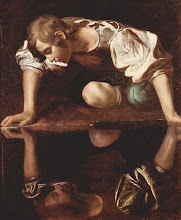They walked on together. The lights and noise still meandered before the prisoners' pens. Alexander walked steadily down river. They picked their way over broken spears and sarissas and javelins, round dead horses and dead men. At length Alexander stopped by the riverbank, where Hephaistion had known he would.
No one had stripped the bodies yet. The bright shields, the victors' trophies, glimmered softly under the moon. The smell of blood was stronger here; bleeding men had fought on longer. The river chuckled gently among the stones.
One body lay by itself, face down, feet towards the river; a young man with dark crisply curling hair. His dead hand still grasped his helmet, which stood by him upside down, with water in it. It was unspilled, because he had been crawling when death overtook him. A blood-spoor, along which he had been returning, led from him to the heap of dead. Alexander picked up the helmet, carrying the water carefully, and followed the trail to its end. This man too was young; he had bled a wide pool, the great vein of his thigh being severed. His open mouth showed the dry tongue. Alexander bent, with the water ready, and touched him, then laid the helmet aside.
"The other had stiffened, but this one is hardly cold. He had a long wait."
"He would know why," Hephaistion said.
A little way on, two bodies lay across each other, both facing upward to where the enemy had been. The elder was a strong-looking man with a fair clipped beard; the younger, on whom he had fallen back in death, was bareheaded. On one side he was bare-skulled; a downward slash of a cavalry sabre had flayed off the face to show a bony grin. From the other side, one could see that beauty had been there.
Alexander knelt, and as one might straighten a garment, replaced the flap of flesh. It adhered, sticky with blood. He looked round at Hephaistion and said, "I did this. I remember it. He was trying to spear Oxhead through the neck. I did it."
"He shouldn't have lost his helmet. I suppose the chin-strap was weak."
"I don't remember the other."
He had been speared through the body, and the spear wrenched back in the urgency of battle, leaving a great torn hole. His face was set in a grimace of agony; he had died wide awake.
"I remember him," said Hephaistion. "He came at you after you struck the first one down. You had your hands full already. So I took him on."
There was a silence. Small frogs chirruped in the river shallows. A night bird sang liquidly. Behind them sounded the blurred chant of the komos.
"It's war," said Hephaistion. "They know they'd have done the same to us."
"Oh yes. Yes, it is with the gods."
He knelt down by the two bodies, and tried to compose the limbs; but they were set hard as wood; the eyes, when he had closed the lids, opened again to stare. Finally he dragged the man's corpse over, till it lay by the youth's with one stiff arm across it. Taking off his shoulder-cloak he spread it so that both faes were covered.
"Alexander. I think you should go back to the komos. The King will be missing you."
"Kleitos can sing much louder." He looked round at the still shapes, the dried blood blackened by moonlight, the palely shining bronze. "It is better here among friends."
"It's only right you should be seen. It's a victory komos. You were first through the line. He waited for that."
"Everyone knows what I did. There's only one honour I want tonight, to have it said I wasn't there." He pointed at the wobbling torchlight.
"Come, then," said Hephaistion. They went down to the water and washed the blood from their hands. Hephaistion loosened his shoulder-cloak and wrapped it around both of them. They walked on by the river into the hanging shadow of the willows fed by the stream.
05 December 2009
Subscribe to:
Post Comments (Atom)

No comments:
Post a Comment